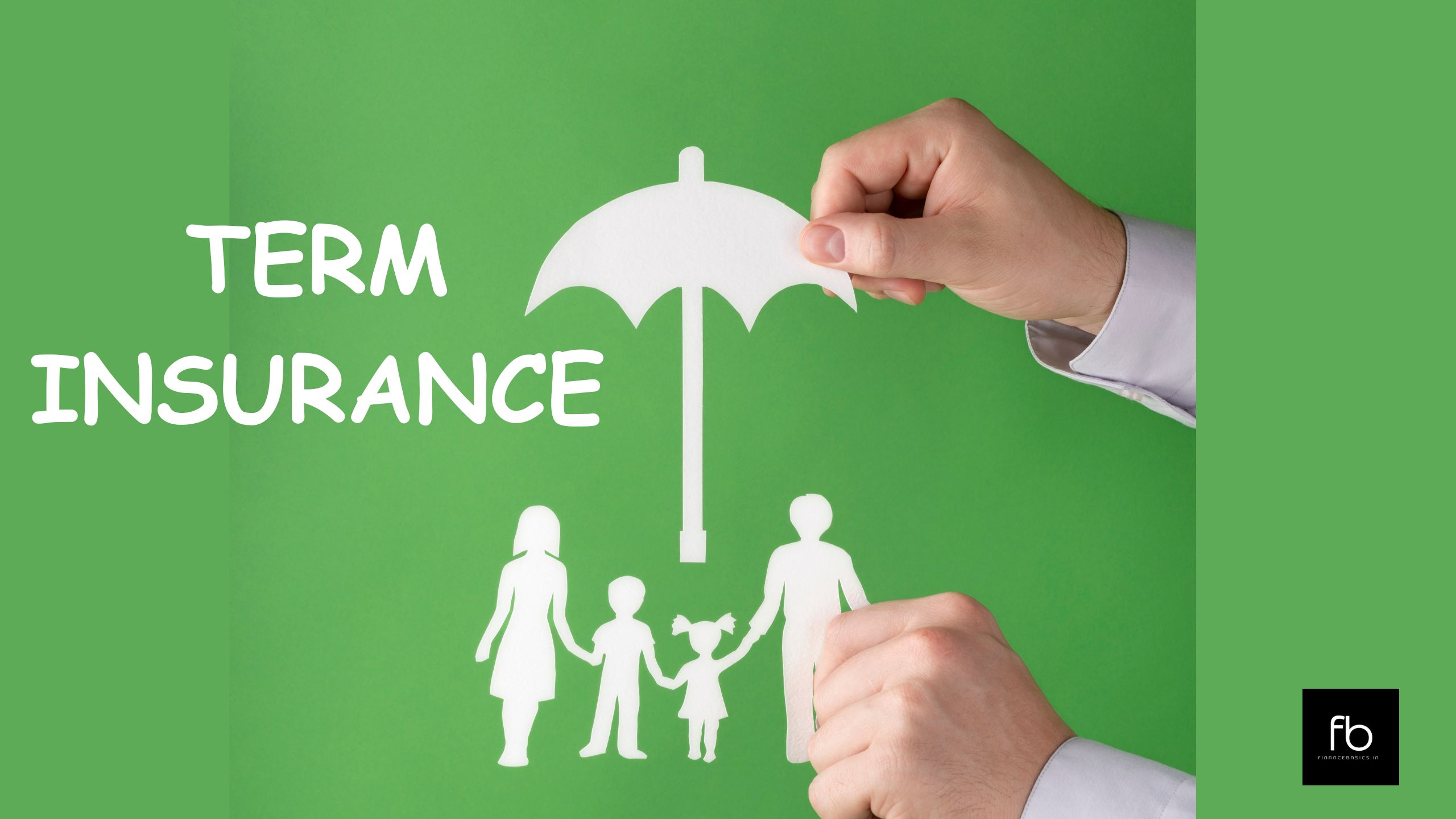Table of Contents
What is term insurance?
Term insurance is the most pure form of life insurance. It offers life coverage to policyholders for a specific policy ‘term’. The policy term can be anywhere between 10 years to 100 years. The premiums can be paid monthly, quarterly, annually or one time. Also the premiums can be paid for the entire duration of the term plan (which is called regular pay) or for a limited duration of the plan (called limited pay).
Incase of limited pay the premium amount is higher as you pay the same premium over a pre-determined number of years. There are many term plans available in the market. Very often choosing one becomes difficult. Let’s look at why you should buy term insurance and the key points to look at before buying a term plan.
Why buy term insurance?
Term insurance acts as a financial safety net for your family, incase of your untimely death or accidental redundancy at work. It is a very purpose specific financial instrument. Every primary earning member of the family should buy term insurance to financially protect their family.
Let us understand the gravity of buying term insurance with an example. Kiran is 26 years old. He lives with his mother who is financially dependent on him. He recently got a job and bought term insurance of Rs 1 crore. After a few years, he meets with an accident and dies. In this case, the term cover which he bought will be paid out to his mother. She will atleast have financial power in her old age and will not be dependent on anyone else for money.
One more example where we can see the impact of taking a term insurance plan. Rajat bought term insurance of Rs 1 crore when he was 25 years old and opted to buy a life stage term plan. He gets married at 28 years and increases his term cover by Rs 50 lakhs to provide buffer for his wife. He has a baby boy at age 30 and increases the term cover again by Rs 50 lakhs to factor in the new family addition. Rajat buys a home at age 34. Now he increases the cover by Rs 1 crore to cover the home cost. So at age 34, Rajat has a term insurance cover of Rs 3 crore. Unfortunately, Rajat dies the next year. The term insurance cover meets his home loan repayment and also provides a financial buffer for his wife and son.
Who should not buy term insurance?
Yes! You read it right. Term insurance plans don’t always suit everyone. As a thumb rule, if you do not have dependents and you do not have large liabilities to pay (like home loan, car loan etc.) then buying a term insurance would not serve any purpose.
When to buy term insurance?
There is no right time to buy term insurance. However, the sooner you buy the better it is because at a young age the premiums are on the lower side.
What should be the period of the term insurance plan?
The whole purpose of term insurance is to protect your family in case of your untimely death. Generally, people complete all their financial responsibilities by age of 60 years. That is also the time when you would retire from active employment. So, term insurance should cover the period till a minimum 60 years of age. You could opt for more period if you wish to.
Should you buy ‘return of premium’ term plan?
The short answer is No. The reason being, ‘return of premium’ plans charge premium which is two or three times more than the normal term insurance premium. It doesn’t make sense to pay a large premium for the same insurance cover. You are better off investing the extra amount in mutual funds SIP.
Let us understand this with an example. Mohan buys a 20 year normal term plan cover of Rs 1 crore and pays a premium of Rs 590 per month. Jatin buys a 20 year ‘return of premium’ term plan with a cover of Rs 1 crore and ends up paying Rs 1,500 premium per month. Mohan invests Rs 1,000 monthly in mutual fund SIP. Assuming Mohan keeps investing in SIP for the 20 year period and gets a return of 12% per annum, his Rs 1,000 monthly SIP grows to a whopping Rs 9.99 lakhs! Whereas Jatin only receives a maximum of Rs 360,000 at the end of the 20 year period.
Should you buy term insurance without medical tests?
There are some insurance companies which provide term insurance plans without a requirement of medical screening tests. However, we do not recommend going for those as the premiums charged are higher than a normal term insurance plan.
Points to look at while buying term insurance plan
#1 Choosing a term cover amount
In general, the term insurance cover should be atleast 10x of your current annual income. Let’s say, Akshat is earning annual income of Rs 5 lakhs. Then he should select a term cover amount of atleast Rs 50 lakhs (5lakh x 10). The rationale being, you need to factor the yearly inflation as you need to arrive at a future value of the sum today.
#2 Opting for life stage feature
Always choose a term plan which is giving you the life stage option. It is an option to increase your cover when you get to important milestones in your life like marriage, addition to the family, buying a home, starting a new business etc. The feature allows you to change your cover as per changing needs. This is a key thing to remember especially when you buy term plan at a very young age.
#3 Riders to be included
Go through all the available riders and ensure you sign up for the accidental death and disability rider. Also opt for the critical illness rider/ terminal illness rider if you have not bought mediclaim policy. Taking these riders is important and many a times people overlook them.
#4 Picking the right insurance company
This is the most important thing while buying a term plan. There are ways of arriving at the right insurance company by looking at the below mentioned parameters:
- Claim settlement ratio (CSR) – The CSR is percentage of claims that are paid/settled. The rule here is ‘higher the better’.
- Amount settlement ratio – This calculates the ‘total amount settled’ as a percentage of ‘total amount claimed’. The rule here is, higher the ratio, better it is
- Solvency ratio – This indicates the ability of the insurance company to meet its long-term liabilities. So higher the solvency ratio, the better it is
- Complaints ratio – It calculates the number of complaints received per 10,000 claims registered. The thumb rule here is, lower the ratio better it is.
#5 Critical illness payouts conditions
- Generally insurance companies do not pay the critical illness payout immediately. They expect you to survive for a certain duration before they make the payment. The thumb rule here is – the lower the duration the better it is.
- Some policies pay critical illness benefit from the total cover available. This is called ‘accelerated payout’. This is while also offering you the option to avail it on top of the total term cover available.
- Insurance companies normally impose a waiting period before making the Critical Illness benefit available. The thumb rule here is – the shorter the duration the better it is.
- Some offer a monthly income or a large lumpsum in the event you are disabled totally for life. It is important to check the payout terms and conditions before deciding on the term plan.
#6 Premium waiver conditions
Some policies offer a waiver of premium if you are disabled totally due to accident or are diagnosed with critical illness. This is a very beneficial condition in the given situation and one must check if your policy is extending this benefit to you.
After you have chosen the term insurance plan, it is important to disclose all your pre-existing medical conditions, surgical history etc. Non disclosure of pre-existing medical issues can lead to rejection of claims in the future. It is also important to complete medical tests requested by the insurance company. Remember, term insurance is a financial cover and not an investment.
Image credits: Image by freepik


